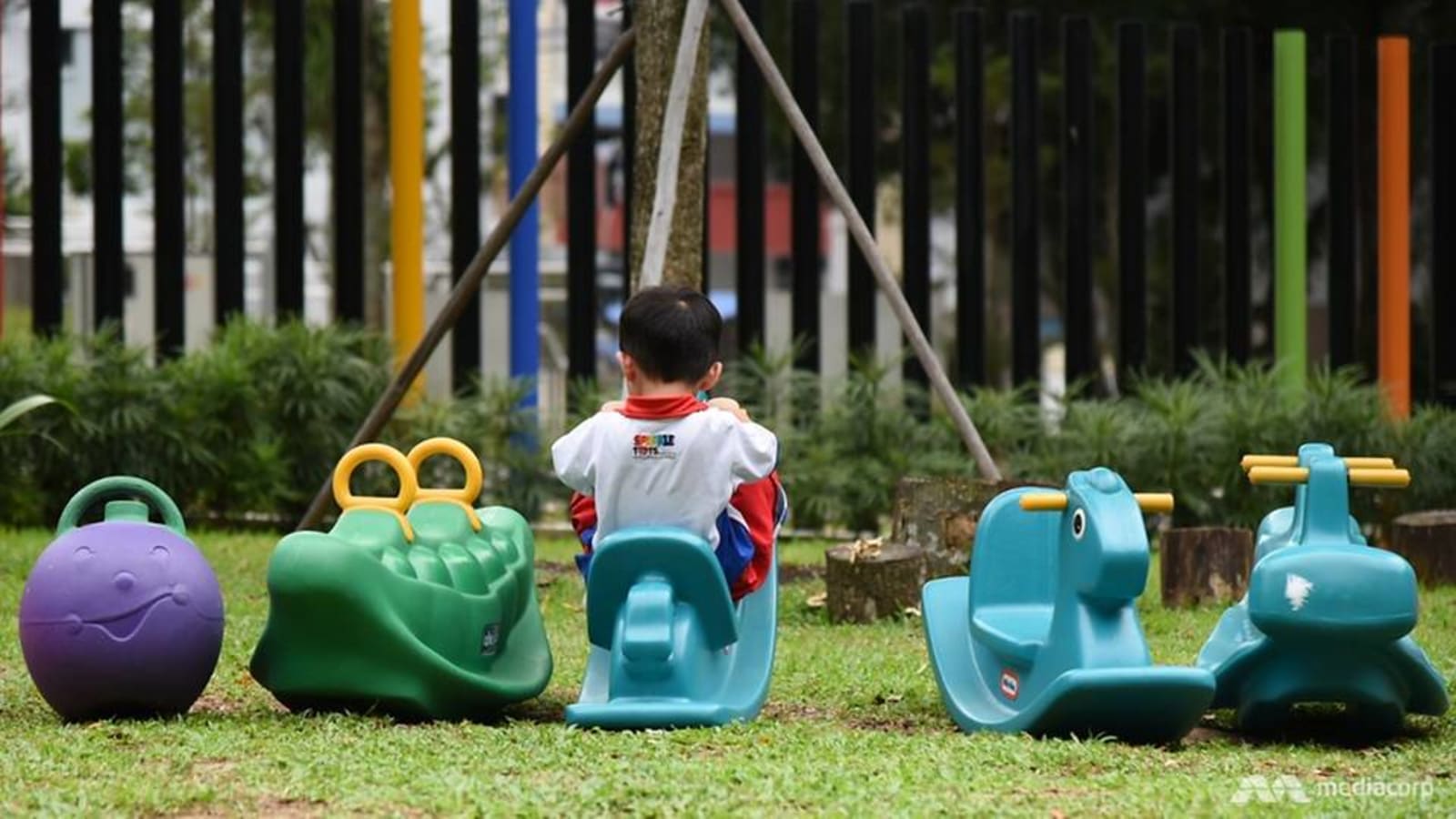
SINGAPORE: Seven new pre-schools will be set up in Punggol, as parents in the estate complain of long waiting lists and a lack of affordable childcare options near their homes.
The Early Childhood Development Agency (ECDA) said the new pre-schools will be developed by the end of this year, and will provide an additional 220 infant care places and 1,700 childcare places.
The agency will also work with new pre-schools in Punggol under the anchor operator scheme to ramp up operations and manpower. Such pre-schools get government funding but have to adhere to a fee cap.
ECDA gave the updates last month in response to queries from CNA, following feedback from parents who have been unable to get pre-school places for their children.
Childcare places in Punggol have risen significantly higher than the overall increase nationally, a spokesperson said.
Over the last five years, the number of infant care places in Punggol more than doubled from 410 in 2017 to 900 in 2021. This compares to the overall increase of 50 per cent nationally in infant care places in the same period, the spokesperson added.
Childcare places in Punggol have similarly grown by 55 per cent from 6,400 in 2017 to 9,800 in 2021, higher than the national increase of 30 per cent in the same period.
The majority of the newly added places are provided by fee-capped anchor operators and MOE kindergartens, the spokesperson said.
Parents who are unable to secure a childcare place can register on a waiting list via the agency’s Preschool Search Portal. The number of children in Punggol on the list who remained unenrolled fell by 60 per cent from 2017 to 2021, ECDA said.
Still, it acknowledged that the pre-school situation remains “tight” in “certain Punggol subzones”.
“The shortages in infant and playgroup places have been exacerbated by COVID-19-related developments – such as pre-school construction delays, difficulties in securing alternative care arrangements and parents preferring pre-schools near homes rather than workplaces.”
Waiting times at some pre-schools may be longer if they are at full capacity for certain age groups. Parents should not expect vacancies to open up within the year until current students move up to the next level, ECDA said.
Some parents on waiting lists also registered their interest well in advance or are seeking a change of school, the spokesperson added.
“As parents may waitlist their children at several pre-schools, not all will take up a place at a pre-school for which they are waitlisted.”
About 12 centres in Punggol have immediate vacancies and another 13 have vacancies within the year, he said.
HAVING TO WAIT FOR A YEAR OR MORE
Punggol parents like Ms Pearl Teo, a 35-year-old whose daughter was born in February last year, have been unable to secure a pre-school place.
As early as five months into her pregnancy, Ms Teo’s neighbours told her she should start looking for childcare vacancies nearby. But she thought it was too soon.
Ms Teo also had plans to take care of her daughter herself in the early years. It was only when a career opportunity came knocking for the professional beauty trainer when her daughter was three months old that Ms Teo started looking for an infant care place urgently.
She was hoping to start work the next month, but she found to her dismay that her neighbours were right.
“All the schools, (the waiting time) was more than one year,” she told CNA. By then, her daughter would be 16 months old, almost eligible for the playgroup level for children aged at least 18 months old.
“I do believe there is a lot of shortage of infant care in Punggol,” she said, adding that what is typically available are the more expensive private childcare centres. She cited a school nearby that would set her family back by S$2,400 a month for full-day infant care services before subsidies. This is double the fee charged by some other centres.
Eventually, her mother volunteered to take care of the baby, and now stays over during weekdays, going back to her own home once a week.
Ms Teo has yet to secure a spot for her daughter in the playgroup level. This is despite registering her daughter at six months old, a whole year ahead of time.
Her 72-year-old mother is also finding it harder to cope with an active toddler and has health issues. She has been putting off cataract surgery because she is afraid she cannot afford the downtime with her caregiving role, Ms Teo said.
The uncertainties led her to quit her job in June.
“It’s a ticking time bomb. I don’t know about playgroup and it’s (taking care of her daughter) is taking a toll on my mum’s health. Sometimes, her legs are very pain and she’s tired,” Ms Teo said.
ECDA said providing access to quality, affordable infant care and childcare remains a key priority for the Government.
“While we are building new pre-school places closer to families, it is not always possible for all families to have a pre-school at the same block or within a few blocks of their homes,” it said.
“We urge parents to broaden their choice of pre-schools and consider pre-schools in adjacent neighbourhoods, in the vicinity of the grandparents’ homes or workplaces as well.”
DEMAND RISING IN OLDER ESTATES TOO
Some older estates such as Choa Chu Kang and Woodlands with new Build-To-Order (BTO) projects are also seeing higher demand for infant care and childcare as young families move in, ECDA said.
The agency said it is working with pre-schools and the Housing Board to make use of void decks and communal spaces to expand the space for childcare centres.
For example, ECDA will develop another 500 infant and childcare places in Choa Chu Kang and 100 infant and child care places in Woodlands, also by the end of this year.

